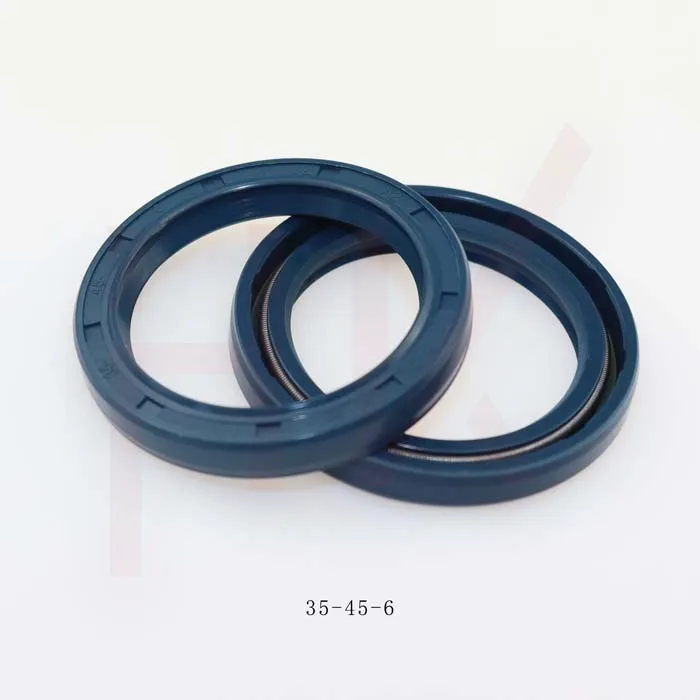Nov . 13, 2024 15:28 Back to list
seal kit pump
Exploring the Seal Kit Pump An Essential Component for Fluid Management Systems
In the realm of fluid management and pumping systems, efficiency and reliability are paramount. One key component that ensures optimal performance in pumps is the seal kit. The seal kit pump plays a critical role in maintaining the integrity of various pumping applications, making it an essential element in numerous industries, including manufacturing, oil and gas, water treatment, and food processing.
A seal kit pump comprises various sealing components designed to prevent leaks and ensure the smooth operation of the pump. These kits typically include different types of seals, gaskets, O-rings, and other related products, specifically engineered to fit different pump models. The primary function of these seals is to create a barrier that prevents the fluid being pumped from escaping into the environment, as well as to stop contaminants from entering the pump.
The Importance of Seal Kits
Seals and gaskets are crucial to the longevity and efficiency of a pump system. When pumps operate, they experience various pressures and temperatures which can cause wear and tear on these components. Therefore, regularly replacing seal kits ensures that pumps operate efficiently and reduces the risk of equipment failure due to leaks. A worn or damaged seal can lead to loss of performance, increased operational costs, and can ultimately result in system downtime, affecting productivity.
Types of Seal Kits
Seal kits come in various types, designed to suit different applications and environments. Among these are lip seals, mechanical seals, and diaphragm seals. Lip seals are often used for rotary applications, providing excellent resistance to wear and contamination. Mechanical seals, on the other hand, are common in high-pressure systems and are favored for their durability and efficiency. Diaphragm seals are used in systems where the process fluid must not come into contact with the measuring device, as they provide a barrier while still allowing pressure measurement.
Each type of seal kit is made from different materials depending on the fluids being handled and the operating conditions. Materials such as nitrile, viton, and PTFE are popular choices due to their chemical resistance and durability.
seal kit pump

Choosing the Right Seal Kit
Selecting the appropriate seal kit pump involves an understanding of the pump's operating parameters, including fluid type, temperature, pressure, and the specific application requirements. It's essential to consult the pump manufacturer’s guidelines or a knowledgeable supplier to ensure that the correct seal kit is chosen. Using the wrong components can lead to inadequate sealing, premature wear, and may ultimately damage the pump.
Maintenance and Replacement
Regular maintenance is crucial for the longevity of pump systems. It is advisable to inspect seals periodically and replace them as needed to prevent leaks. Many businesses implement predictive maintenance strategies that involve monitoring the performance of their pumping systems and making data-driven decisions about seal replacement.
Furthermore, keeping a stock of seal kits on hand can be a smart move for companies relying heavily on these systems, as this reduces downtime during unforeseen failures.
Conclusion
In conclusion, the seal kit pump is a vital component in ensuring the efficient operation of pumping systems across numerous industries. By providing a reliable means of preventing leaks and maintaining system integrity, seal kits play an essential role in extending the lifespan of pumps. Organizations should prioritize the selection, maintenance, and timely replacement of these kits to enhance operational efficiency, reduce costs, and ensure the reliable management of fluids in their systems. Investing in quality seal kits and proper maintenance practices is an investment in the overall productivity and sustainability of any business reliant on fluid management systems.
-
TCN Oil Seal Metal Ring Reinforcement for Heavy Machinery
NewsJul.25,2025
-
Rotary Lip Seal Spring-Loaded Design for High-Speed Applications
NewsJul.25,2025
-
Hydraulic Cylinder Seals Polyurethane Material for High-Impact Jobs
NewsJul.25,2025
-
High Pressure Oil Seal Polyurethane Coating Wear Resistance
NewsJul.25,2025
-
Dust Proof Seal Double Lip Design for Construction Equipment
NewsJul.25,2025
-
Hub Seal Polyurethane Wear Resistance in Agricultural Vehicles
NewsJul.25,2025
-
The Trans-formative Journey of Wheel Hub Oil Seals
NewsJun.06,2025
Products categories
















